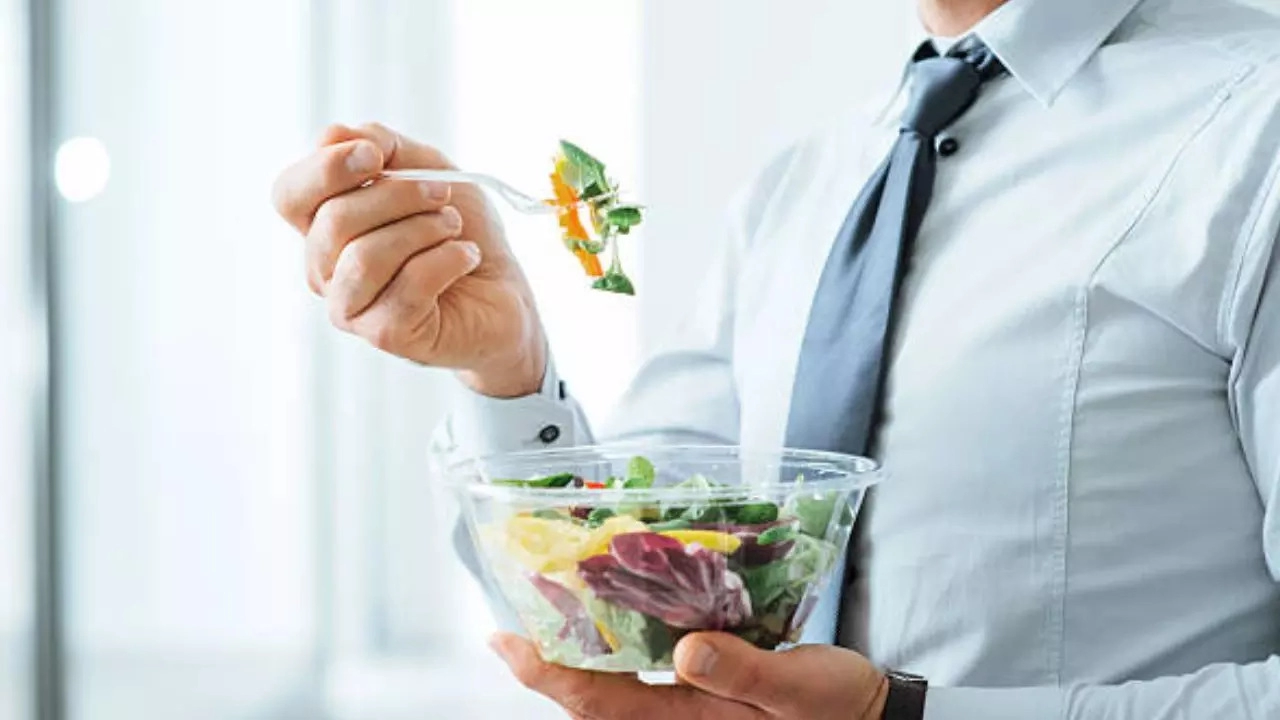Pallavi Mehra • 02 Aug 2024
What Should You Eat, Avoid When You Have Kidney Stones? Expert Answers

What Should You Eat When You Have Kidney Stones? Expert Answers (Image Credits: iStock)
Kidney stones, which are hard deposits of minerals and salts that form in the kidneys, can cause severe pain and discomfort. These stones come in various types, including calcium oxalate, uric acid, calcium phosphate, and struvite, each requiring specific dietary considerations. While medical treatment is often necessary, dietary adjustments play a crucial role in managing and preventing kidney stones. Understanding what to eat and what to avoid is essential for effective stone management.
To provide expert insights, we consulted Dr. Rajeev Sood, Chairman of Urology and Renal Transplantation at Marengo Asia Hospital, Gurugram. He shares valuable information on dietary changes based on the type of kidney stones and how these adjustments can help manage your condition.
Types of Kidney Stones
According to Dr Sood, kidney stones vary in form, and dietary recommendations differ based on the type:
- Calcium Oxalate Stones: The most common type, formed when calcium combines with oxalate in the urine.
- Calcium Phosphate Stones: These stones develop in alkaline urine.
- Uric Acid Stones: Formed when urine is excessively acidic.
- Struvite Stones: Often develop due to infections.
- Cystine Stones: Rare and caused by a genetic disorder.
What to Include in Your Diet?
Dr Sood recommends incorporating the following foods:
1. Water: Staying hydrated is crucial for diluting urine and preventing kidney stones. Aim for 8 to 10 glasses of water daily to keep urine diluted and reduce the risk of stone formation.
2. Citrus Fruits: Fruits like grapefruits, oranges, and lemons are rich in citrate, which helps prevent stone formation by binding calcium in the urine.
3. Calcium-Rich Foods: Foods such as dairy products, cheese, yogurt, and fortified plant-based milk are important for managing calcium oxalate stones. Adequate calcium intake helps bind oxalate in the intestines, reducing the risk of stone formation.
4. Low-Oxalate Foods: Incorporate foods like peas, apples, bananas, cherries, cauliflower, cucumbers, and tomatoes. These help lower oxalate levels in urine and prevent calcium oxalate stones.
5. High-Fibre Foods: Vegetables, lentils, and whole grains provide fibre, which helps reduce calcium absorption and lowers the risk of stone formation.
6. Plant-Based Proteins: Lentils, beans, and tofu are good alternatives to animal proteins. They do not raise uric acid levels or reduce urine citrate, which helps in preventing stones.
Foods to Avoid
Dr Sood advises avoiding the following foods:
1. High Sodium Foods: Excess sodium can increase calcium in urine, leading to stone formation. Limit processed foods, canned soups, salty snacks, and fast foods.
2. High-Oxalate Foods: Spinach, rhubarb, beet greens, almonds, chocolate, tea, and soy products can increase the risk of calcium oxalate stones. Reducing these can help prevent stone formation.
3. Animal Proteins: Red meat, poultry, eggs, and shellfish can increase uric acid levels and lower urine citrate, contributing to kidney stones. Moderation is key.
4. Sugary Foods and Drinks: High sugar intake can increase calcium excretion and reduce urinary volume, raising the risk of stones.
5. Coffee: Excessive caffeine from coffee, tea, and energy drinks can cause dehydration and raise calcium levels in urine. Reducing caffeine helps maintain proper hydration and lower calcium levels.
Expert Advice
1. Moderation: Even healthy foods can contribute to stone formation if consumed in excess. Balance is crucial.
2. Gradual Changes: Implement dietary changes gradually to allow your body to adjust and ensure sustainable habits.
3. Regular Monitoring: Work with your physician to monitor your condition and adjust your diet as needed based on the type of kidney stones you have.
Get Latest News Live on Times Now along with Breaking News and Top Headlines from Diet, Health and around the world.